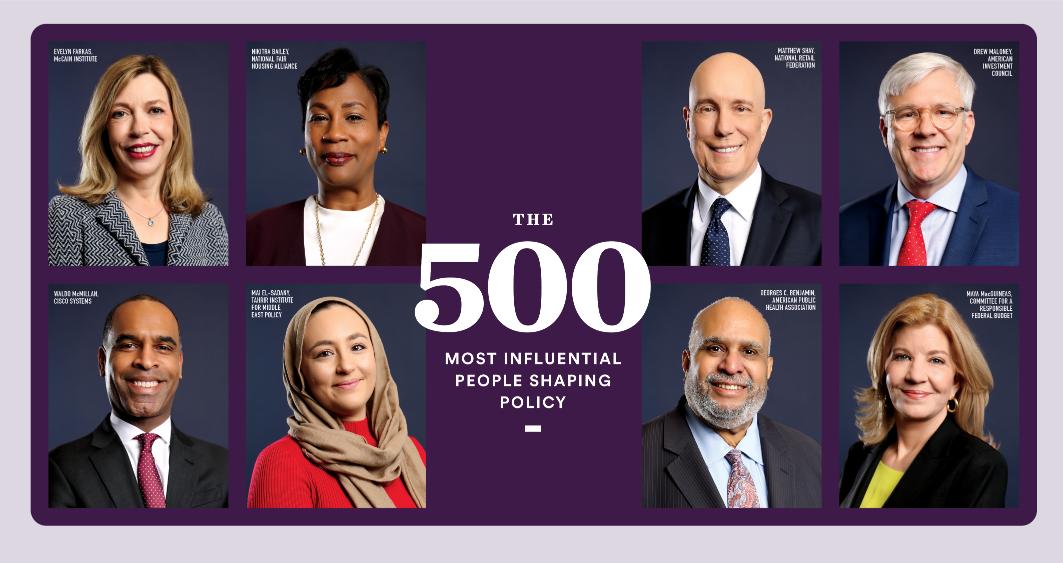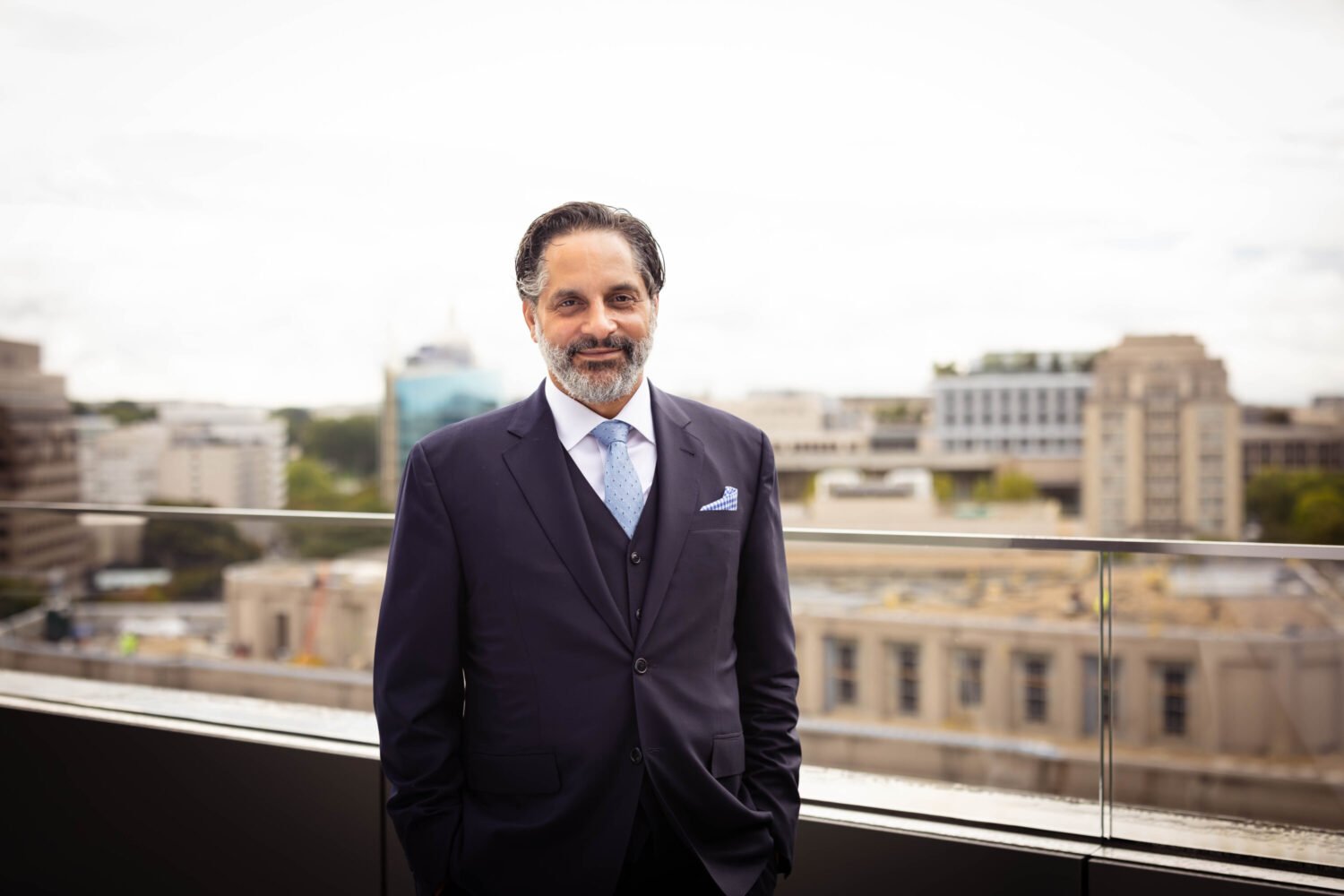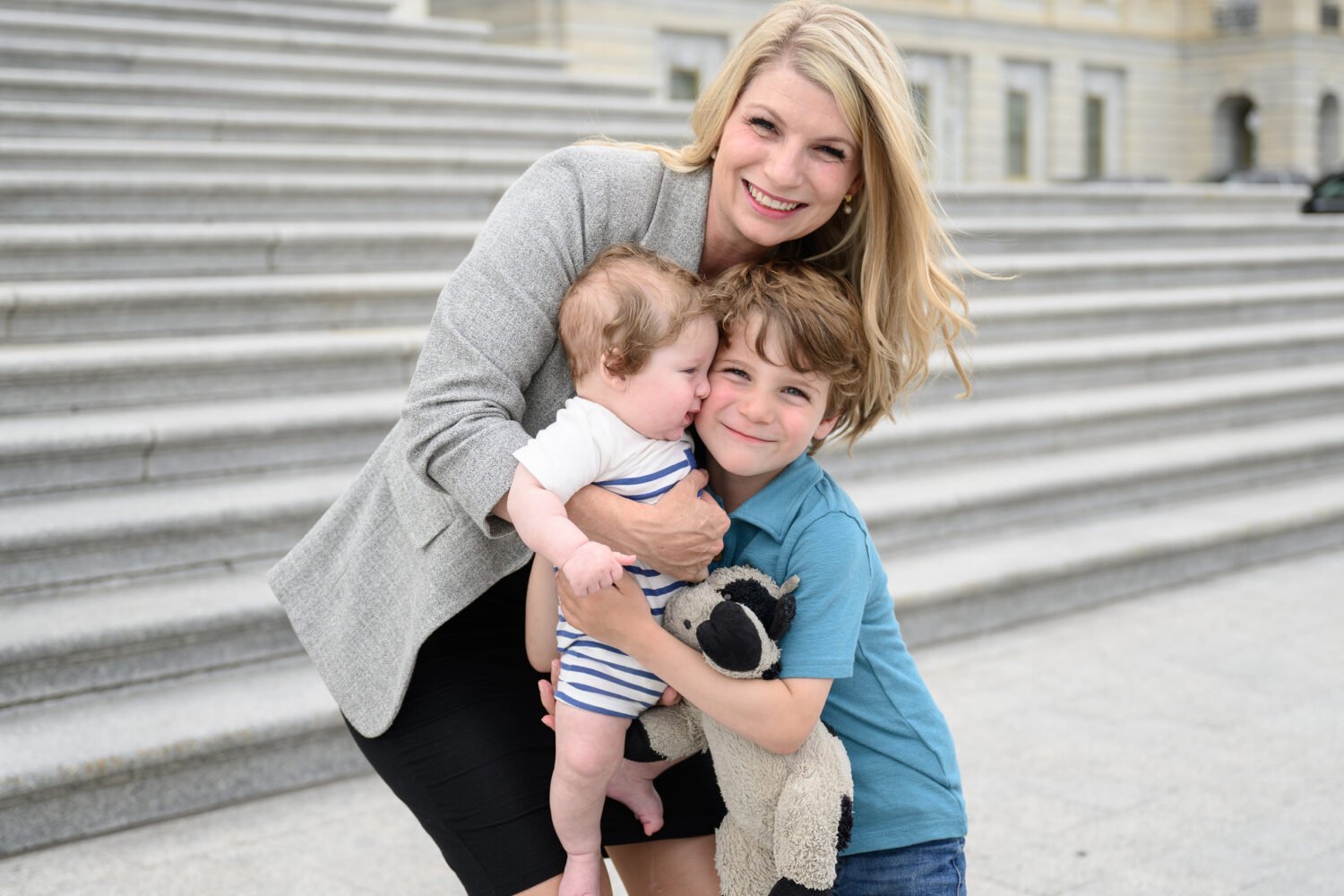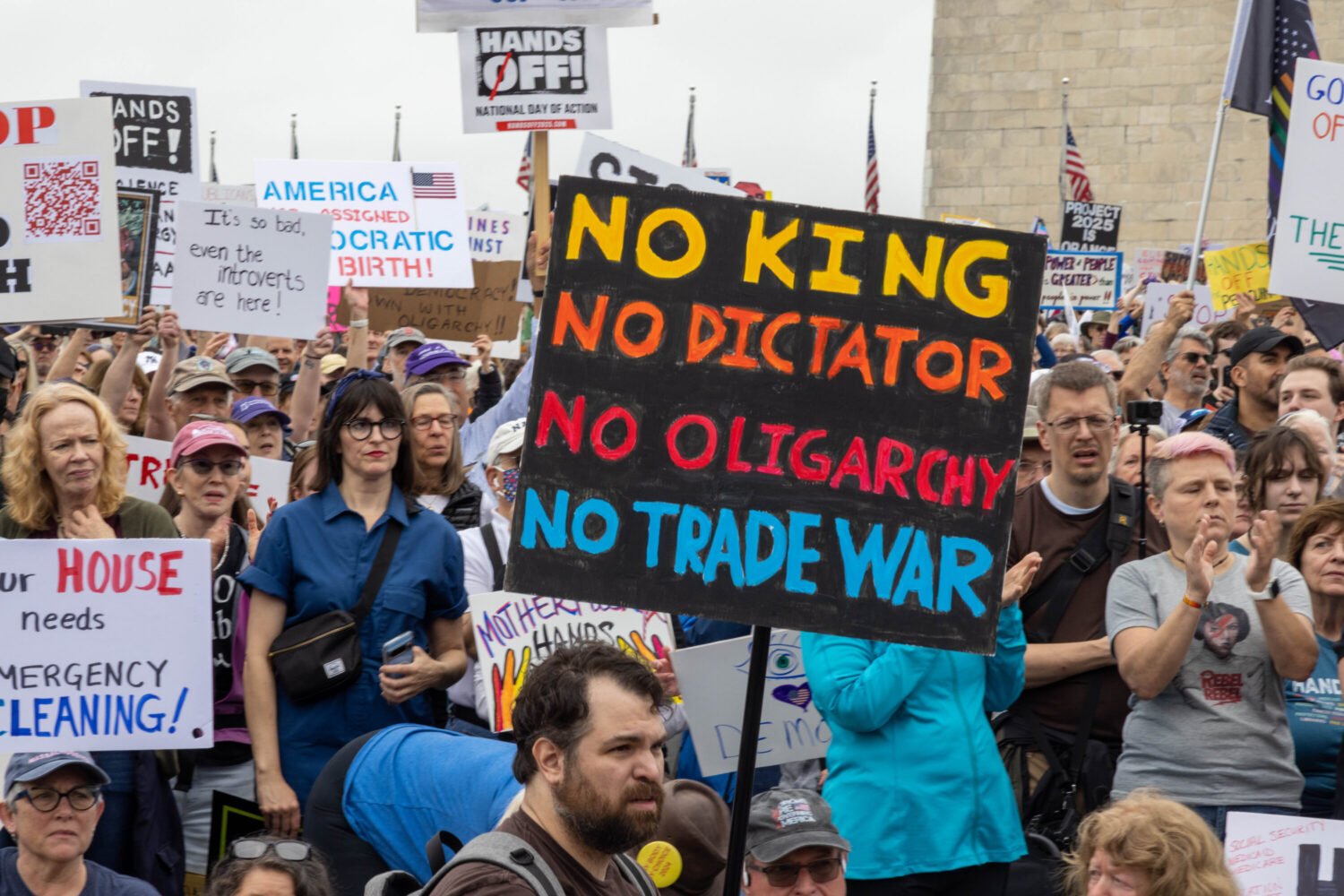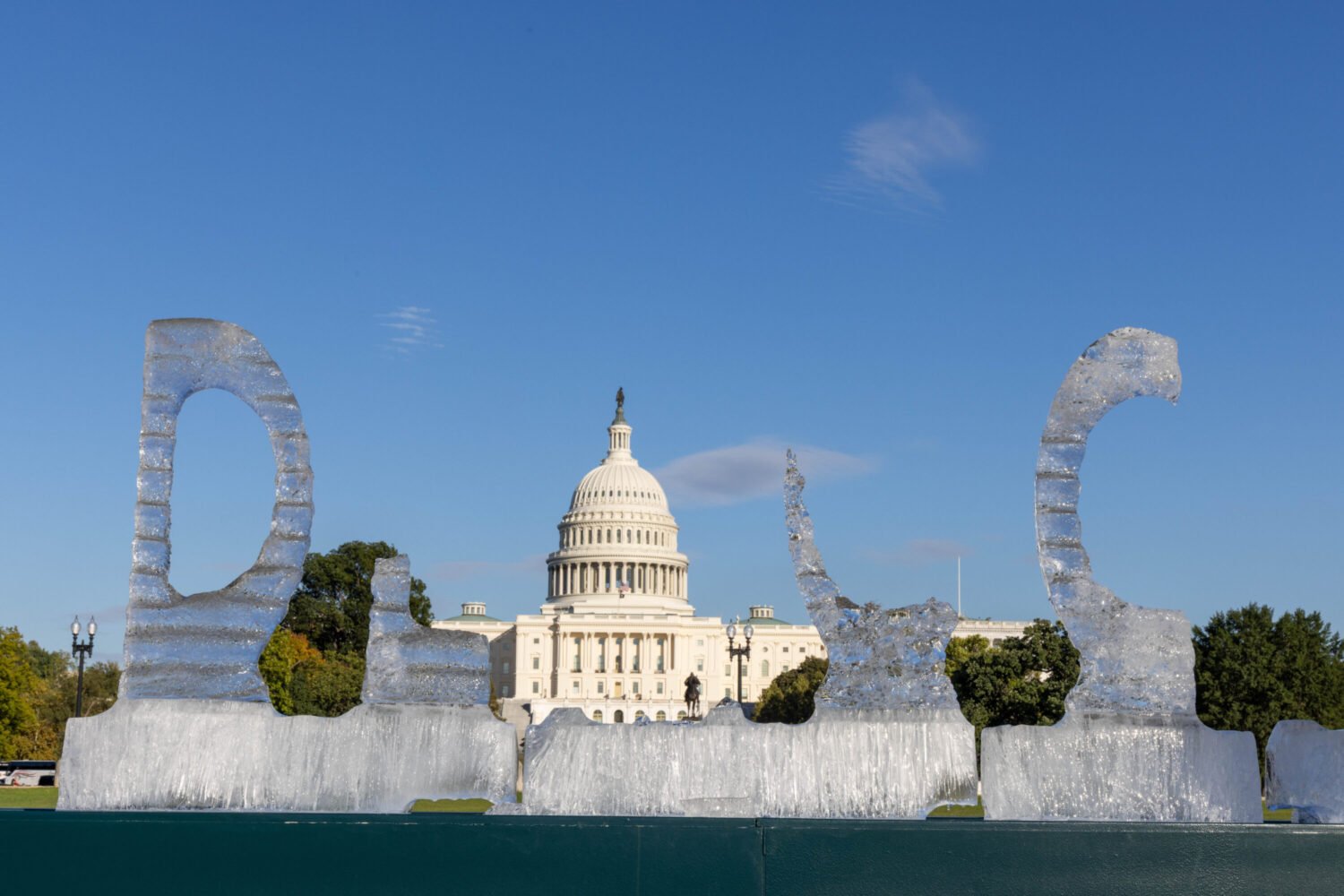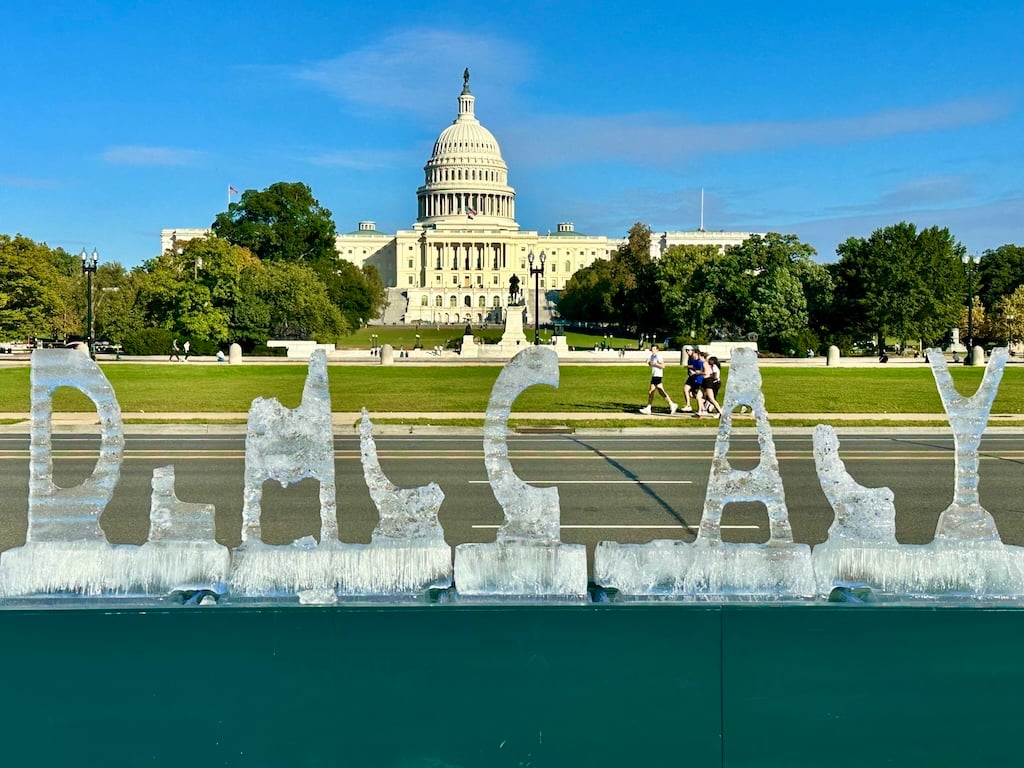After a lucrative 12-year run on Capitol Hill, it hasn’t been the best of times for Washington lobbyists, especially Republicans.
One of the most prominent lobbyists, Jack Abramoff, now resides in Cumberland, Maryland, a guest of the Federal Bureau of Prisons. His prosecution on charges of giving illegal gifts and meals to lawmakers and defrauding clients cast a pall over a profession that, fairly or not, didn’t have the best reputation to begin with.
For Republicans who thought things couldn’t get worse, they did. Democrats won both houses of Congress in the 2006 elections, returning some old bulls—among them Barney Frank, Charles Rangel, John Conyers, John Dingell, and Henry Waxman—to power.
Twelve years earlier, new Republican majority leader Tom DeLay instituted the K Street Project, by which loyal friends of the 1994 Republican revolution were to be rewarded. Big business was none too subtly informed that friends and aides of the victors should reap the spoils.
Democratic powers like Thomas Hale Boggs Jr. began talking about retirement. Republican staffers and even members of Congress, eager to cash in, left the Hill and began recruiting clients who could benefit from their contacts and influence.
Abramoff was just one lobbyist who became a hot property. In 1998, when we last picked Washington’s 50 top lobbyists, Abramoff ranked 22nd. Shortly thereafter he was wooed away from one firm by another, whose revenues skyrocketed—and whose partners apparently didn’t look closely at how he operated.
The amount of money generated by people claiming to have influence that can affect legislation, appropriations, and agency decisions is big. Laws now require lobbyists to file financial-disclosure forms when they make contact with a legislator. Those forms reveal the minimum that lobbyists can make. Much more money still legally goes unreported—for organizing grassroots lobbying campaigns, advising clients on how they can lobby, making speeches, contacting regulatory agencies, and creating public-relations campaigns.
A major group of clients is public universities, hospitals, and municipalities, which spend hundreds of millions of dollars each year to win appropriations, often in the form of earmarks—language designating that funds go to a specific project or institution—that their elected representatives don’t have the time or power to get.
“Congressional staffs are extremely busy, and often there aren’t enough staffers to do everything,” says a lobbyist who specializes in representing cities. “Our job is to facilitate communication, package priorities, and make sure that requests for funding meet deadlines and get included in legislation.”
This has created an odd situation on Capitol Hill. Members of the House of Representatives make $165,200 a year. Former congressmen like Bill Paxon of New York and Bob Livingston of Louisiana make that much representing a single university, hospital, or water district. Livingston’s lobby group took in $16 million last year, much of it from government institutions in Louisiana that he formerly represented.
Two of the biggest lobby firms in Washington, Cassidy & Associates and Van Scoyoc Associates, specialize in earmarks.
“Public institutions are starved for facilities,” says Stewart Van Scoyoc, who counts dozens of colleges among his clients. “They can’t go to their states because the legislatures claim they have no money, so they come to us.”
Depending on the size of the project and the target funding, lobbying fees can range from $700,000 to $1,000,000 a year, on the high side. There are no guarantees—lobbyists are not allowed to work on contingency. If the project is not included in an appropriations bill, there is nothing to do but try, try again the next year, perhaps with a more influential lobbyist.
Earmarks are profitable, but many lobbyists look down their noses at that practice area. Says tax lobbyist John Raffaelli, “We don’t play in that world. Our firm is more involved in creating strategies for policies that my clients are advocating.”
Crudely distilled into three words, practitioners say, the lobbying game boils down to “finding, grinding, and minding.”
You find a client with a need, and then you have to go into the system and find a way to get what the client wants done. That’s the grinding. The minding is making sure that your language or your earmark stays in the bill until it is signed by the President and isn’t axed, thanks to a rival lobbyist, at the last minute. The minding, lobbyists say, continues even after your legislation is passed.
In 2006 a mysterious last-minute provision that had the effect of prohibiting online poker made its way into a port-security bill. Martin Gold, the lobbyist responsible for making it happen, is with Covington & Burling, which represents the National Football League. The NFL was not really interested in poker, but many online gambling sites also allow betting on football games. The NFL wants to stamp out gambling on its games. It doesn’t like that online gambling sites make money off its product without paying the NFL for the privilege. Online poker got caught in the crossfire when Gold’s provision made it much more difficult to transfer cash from American banks to online casinos.
After the new Congress took power in 2007, House Finance Committee chair Barney Frank announced that he would revisit the ban on Internet gaming and hoped to rescind the measure the NFL paid for. That, lobbyists say, is where the minding comes in. Even after a bill is passed and signed, it is subject to reversal. The good lobbyist can’t let his or her guard down.
In the wake of the Abramoff scandal, questions were raised, as they periodically are, about the need for a layer of lobbyists between corporate America or municipal America and the United States Congress. Lobbyists, almost to a person, write Abramoff off as the bad apple in the barrel rather than acknowledging that the barrel itself might be the problem. A few lobby firms have appointed ethics officers; most say they aren’t needed. But even good ones sometimes work in the shadows. As one prominent lobbyist observes, “My greatest success every year is getting something done without having my fingerprints on it.”
On the surface, the lobbying industry seems to be highly competitive. Legal Times recently listed 50 firms with revenues of more than $7 million a year. The highest-grossing of the 50, the law firm Akin Gump, reported $76 million in lobbying fees last year.
Law firms, owned by their partners, are quite competitive. But in recent years private lobby shops, operating outside the strictures of bar-association codes, have proliferated. A little secret of Washington lobbying is that three large international advertising companies own most of the powerful lobby companies. They are Omnicom, based in New York, and two London corporations, WPP and Interpublic Group.
Vin Weber, a former Minnesota congressman now perceived as one of the most influential Republican lobbyists, works for a relatively obscure consulting firm called Clark & Weinstock. But Clark & Weinstock is owned by Omnicom. Omnicom also owns Ketchum, a large PR firm, which owns the Washington Group, whose CEO is former congresswoman Susan Molinari. Omnicom also owns the giant PR firm Fleishman-Hillard as well as the Washington lobby company Porter Novelli.
British-based WPP owns three giant PR companies—Ogilvy, Burson-Marsteller, and Hill & Knowlton. Within that framework, the British now own such powerful lobby firms as Quinn Gillespie & Associates, Timmons & Company, and Wexler & Walker. Interpublic is the owner of one of Washington’s biggest lobby shops, Cassidy & Associates.
Wayne Berman, whose homegrown Federalist Group turned into Ogilvy Government Relations, owned by WPP, is typical in claiming that the foreign ownership is no problem: “It gives us a larger canvas and offices all over the world.”
I asked another lobbyist how people would feel if a Chinese company rather than a British one owned five of the most influential lobbying firms in America with many former members of Congress on the payroll.
“I never thought of it that way,” he replied. “I guess that might be a problem.”
The most successful lobbyists do more than represent their clients’ interests. They also raise money from clients for the politicians whose favors they seek. And some of their millions of dollars in fees goes to the wining and dining of legislators, though much of the ostensible graft has been taken out of the system with restrictions on free meals, game tickets, and the like.
With Republican rule at an end for now and Democrats back on top in Congress, there naturally are changes in who’s on top in the lobby world. But Republicans are not completely out of luck. The 51–49 makeup of the Senate is tenuous. As one GOP-oriented lobbyist says, “We are down but not out. The Democrats can’t get anything done in the Senate without us.”
After culling the lobby disclosure reports and checking on who has gotten things done, who is likely to get things done in the next few years, and who has the best connections and influence, we present Washington’s 50 top lobbyists.
1. Thomas Hale Boggs, Patton Boggs. His father was Democratic House majority leader. His mother succeeded her husband in Congress after his death in a plane crash. His sister is a leading Washington journalist. Another sister was a New Jersey mayor. But this son of Washington power, never elected to political office, surpasses them all in influence.
It was thought, after Republicans took power in the 1990s, that Boggs’s influence would wane. He talked about retiring to his Eastern Shore farm, where he liked to take House committee chairmen on weekend hunting trips. Now, with close friends like John Dingell, Henry Waxman, and Barney Frank back on top, Boggs’s law firm, Patton Boggs, makes $70 million a year from more than 350 lobbying clients.
His biggest and best-known client, Mars, pays him $2 million a year. In return Boggs has for years made sure that every US serviceman and woman gets a Snickers bar or pack of M&Ms in his or her rations almost every day.
2. Robert Dole, Alston & Bird. The onetime presidential candidate and Republican Senate majority leader let it be known after leaving office that he was willing to promote anything from Viagra to Visa to Dunkin’ Donuts. Sure enough, of all the US senators turned lobbyists, Bob Dole is at the top.
When many people expressed outrage that the management of our vital seaports was being outsourced to an Arab-owned company, Dubai Ports World, Dole signed on to build public support for the takeover. Dole’s fee from Dubai was $320,000 in 2006. The Wall Street Journal reported in April that Dole had accepted a $560,000 fee to help a controversial Russian billionaire under suspicion in Russia for bribery obtain a visa to the United States. Dole, who says he doesn’t lobby his wife or other members of the Senate, persuaded the State Department to grant the visa.
At 83, Dole is described by colleagues as an unreconstructed workaholic who has never been happier—and certainly not more prosperous.
3. Tony Podesta, Podesta Group. A Chicago native who came to Washington in 1970 to work for Common Cause, Tony Podesta has a practice that’s changed in recent years. Once associated with high-tech and media clients, he recently was hired by British Petroleum, whose pipeline problems and refinery fires have created regulatory and public-relations issues. Podesta has quietly been guiding BP through congressional hearings.
He also represents Lockheed Martin and General Dynamics, trying to sell Congress and the Pentagon on another version of their Stryker troop-transport vehicle. During the Clinton administration, it didn’t hurt that brother John was White House chief of staff.
When Republicans came to power, the former Ted Kennedy aide deftly partnered with Republican strategist Dan Mattoon, a pal of then-Speaker Dennis Hastert’s. Mattoon hired Hastert’s son to work with him. With Nancy Pelosi now Speaker, Mattoon, the younger Hastert, and Podesta split up earlier this year. Podesta and his team of 23 lobbyists are said to collect $12 million to $15 million in annual billings.
4. Jack Quinn, Quinn Gillespie & Associates. A former White House counsel to President Clinton and confidant of Al Gore’s, Jack Quinn has jumped to the top of the heap of former Democratic bigwigs. His firm lists revenues of some $18 million a year and is growing at 15 percent a year. His client fees include $560,000 annually from the Alliance for Quality Nursing Home Care, and he pulls in millions more from public accountants, drug companies, banks, and telecommunications companies.
Quinn and his partner, Republican strategist Ed Gillespie, sold ownership of their business several years ago to London-based WPP. The sale no doubt netted Quinn millions. His greatest lobbying coup remains his most notorious—winning a presidential pardon for international financing fugitive Marc Rich as President Clinton was leaving the White House.
5. Vin Weber, Clark & Weinstock. The past 12 years have been good ones for Minnesota ex-congressman Vin Weber, once a neighbor of Newt Gingrich’s in Arlington. Rather than join the Gingrich revolution, Weber decided to take advantage of it. He became the Washington face of a once-obscure New York law firm and built it into a ten-person, $9-million lobbying practice.
Weber has received more than $2 million in recent years from BNP Paribas, a French bank involved in the controversial United Nations oil-for-food program under which Saddam Hussein is said to have pocketed some $10 billion. Weber steered bank executives through a gauntlet of congressional hearings and explanations to the White House and State Department, and BNP Paribas emerged from the scandal unscathed.
6. Linda Daschle, Baker Donelson, Bearman, Caldwell & Berkowitz. A lifelong airplane enthusiast who began working for the Federal Aviation Administration in her twenties, Daschle now brings in more than $1 million a year from clients such as American Airlines, Boeing, and Lockheed Martin.
When her husband, former Democratic Senate majority leader Tom Daschle, was in power, eyebrows often were raised about Linda Daschle’s success. But with her husband no longer in office, she has been more successful than ever, in part because she has dropped her self-imposed curb on lobbying the Senate. She has expanded her lobbying niche from air to rails, working for Norfolk Southern on rail-security legislation. She’s also working hard on behalf of American Airlines on FAA reauthorization—legislation that will set goals and priorities for air travel into the next decade.
7. Joel Jankowsky, Akin Gump. Washington’s most profitable lobbying group in 2006 is headed by this soft-spoken Oklahoman who is said never to have sent a press release touting his accomplishments. Jankowsky created the Akin Gump lobby practice more than 20 years ago for firm patriarch Robert Strauss, who at age 89 still comes into the office regularly but is not registered as a lobbyist. With a team of 45 and revenues over $76 million last year, according to Legal Times, Akin Gump’s lobby practice is one of the biggest in Washington.
One of Jankowsky’s most profitable endeavors, though ultimately unsuccessful, was attempting to deflate congressional opposition to China’s National Offshore Oil Company’s attempt to buy California-based Unocal. Stockholders’ eventual acceptance of a rival bid from Chevron had to have left the Chinese wondering if Jankowsky’s $2.2-million fee was worth it.
8. Edward Gillespie, Quinn Gillespie & Associates. The Democrats may have won Congress, but the White House is still in Republican hands, and this former RNC chair has turned his relationship with President Bush into an $18-million business. A onetime aide to Republican House majority leader Richard Armey, Gillespie helped draft the “Contract With America” that accompanied the GOP victory in 1994.
When the White House needed help pushing the Supreme Court nominations of John Roberts and Samuel Alito through Congress, Gillespie was happy to step in with free advice. Gillespie partners with Democratic powerhouse Jack Quinn to make sure all bases are covered. His blue-chip client list includes AT&T, Sony, and big drug companies. Some of his largest fees have come from Canadian lumber producers seeking access to US markets.
9. Gerald Cassidy, Cassidy & Associates. The subject of a recent series of stories by Washington Post reporter Robert Kaiser, Cassidy has built one of DC’s largest lobbying organizations. It was once considered the wealthiest lobby shop in town, but recent figures show Cassidy fourth in reported revenues behind Patton Boggs, Akin Gump, and Van Scoyoc Associates.
Still, $28 million in annual billings, while down 10 percent from 2005, is very good, and Cassidy continues to attract business with his expertise in getting federal funding for universities, local governments, and even municipal school systems. As Boggs has put candy bars in the hands of soldiers, Cassidy once did a deal to get Ocean Spray fruit juices into public-school systems.
10. Michael House, Hogan & Hartson. A former chief of staff to Alabama senator Howell Heflin, House has what is believed to be the second- or third-largest lobbying account in Washington—that of Japanese automaker Nissan North America. Nissan’s lobbying invoice, according to Congressional Quarterly, is more than $2 million a year and makes up more than 10 percent of Hogan & Hartson’s lobby billings.
House, who lives in McLean, leads an effort by a coalition of mortgage banks and private lenders to increase regulations and restrictions on Fannie Mae and Freddie Mac, the two federally chartered mortgage companies they compete with.
11. John Merrigan, DLA Piper. With $46 million in annual lobbying revenues and some 40 active lobbyists, DLA Piper—the product of law-firm mergers over the years—rivals Patton Boggs as the largest lobby practice in town. It boasts such prominent names as former House leaders Dick Armey and Dick Gephardt and is chaired by former Senate majority leader George Mitchell, whose efforts on everything from brokering peace in Ireland to investigating steroid abuse in Major League Baseball have put DLA Piper front and center. But Capitol Hill types say the brains behind the lobbying practice is longtime partner John Merrigan, a Democrat whose business is expected to soar with his friends back in charge of Congress.
Showing how the worm has turned, the government of Turkey, which formerly relied on Robert Livingston’s GOP-oriented company, has hired DLA Piper. Even before the switch, Merrigan was hired by the state of Florida to prevent its military bases from being closed; none was. Demurs Merrigan: “It didn’t hurt that the governor [then Jeb Bush] has his own access to the chain of command.”
12. Wayne Berman, Ogilvy Government Relations. Republican lobbyist Berman was said to be only half kidding when he told the New York Times that it was time to buy a fishing pole and take some yoga classes. Shortly thereafter, he was signed by the Poker Players Alliance to work on ending the ban on electronic money transfers into online gaming sites—a $540,000 deal for Berman, who clearly isn’t hanging up his spurs.
In the Chinese oil company’s bid to buy Unocal, it was Berman who stirred up the hornet’s nest that killed the deal and allowed his client, Chevron, to buy Unocal for $2 billion less than the Chinese had offered. Berman’s take? A modest $360,000—some $1.8 million less than Akin Gump got from the losing party.
13/14. Kenneth M. Duberstein and Michael Berman, the Duberstein Group. A prominent pairing of Republican and Democrat, the Duberstein Group models its practice after the company founded by William Timmons, Timmons & Company, of which Duberstein was vice president.
Duberstein, a top aide and final chief of staff to President Reagan, frequently helps the White House with judicial nominations and other appointments. Berman, a longtime organizer of Democratic national conventions, was a top aide to Senator and then Vice President Walter Mondale and a close adviser to Bill and Hillary Clinton.
Part of the in crowd at the Palm, Duberstein and Berman are fixtures in the lobby establishment, looking after the legislative and tax interests of BP, Comcast, General Motors, Time Warner, and more.
15. John Breaux, Patton Boggs. Former US senators tend not to have great reputations as lobbyists. Some say they lack the organizational skills to put together a complex lobbying plan; others think they’re just uncomfortable bowing before their colleagues. Louisiana’s John Breaux, who left the Senate honestly—saying he needed to make money—is the exception to that notion. Working on energy and health issues and getting reconstruction projects for his native state, Breaux is said to have added as much as $4 million to Patton Boggs’s bottom line—double the $2 million Breaux is making at the firm on a contract.
The firm is no doubt happy, even if some Louisianans aren’t, that Breaux has shelved plans to leave Washington and run for governor of the Bayou State.
16. Martin Gold, Covington & Burling. Gold won’t win any awards from the online poker-playing community. He is said to have been the strategist behind the measure to block Internet gaming that was thrown into the port-security bill at the last moment last year by then–majority leader Bill Frist. According to lobby disclosure forms, Gold and his group were paid some $700,000 by the National Football League, a longtime client of Covington & Burling.
Some of the money was for work on other NFL problems, such as congressional hearings on steroids, but sources say most of it was for antigambling work. With House Finance Committee chair Barney Frank vowing to undo the antigaming measure, Gold is in business for another session.
During Frist’s first year as leader, Gold was his counsel, a post Gold once held for Frist predecessor Howard Baker. The pro-poker forces, who have now hired former GOP senator Alfonse D’Amato to reverse the ban, never had a chance.
17. David Johnson, Johnson, Madigan, Peck, Boland & Stewart. One of the savviest Democratic lobbyists in Washington, Johnson is a former adviser to Maine Democrats Edmund Muskie and George Mitchell. With the Democrats in the wilderness the past decade, Johnson had the wiles to join forces with the Republican lobby shop Boland & Madigan.
Michael Boland, a former aide to then–majority leader Trent Lott, and Peter Madigan, a trade official in the first Bush administration, carried the company during the GOP years; now Johnson promises to do the heavy lifting while the Democrats rule. He has beefed up ties to Senate Democrats by hiring Jeff Peck, a former top aide on the Senate Judiciary Committee.
Johnson has signed up some 15 new clients, including major drug manufacturers, who constantly need help with drug approvals and expiring patents. Altria Group, the tobacco company formerly known as Philip Morris, also pays Johnson $320,000 a year for his services.
18. Elliott Portnoy, Sonnenschein Nath & Rosenthal. It is unusual that a Chicago law firm would choose a 40-year-old Washingtonian as chair of its executive committee—and even more unusual that he would be the head of its lobby practice. Lobbyists don’t often get that much respect. But Portnoy has built his firm’s lobby practice into a $20-million business in a few years.
He has been heavily involved in asbestos legislation, for which he receives fees of $600,000 a year. He is also known for the work that made him a 1999 Washingtonian of the Year—his leadership of Kids Enjoy Exercise Now, a nonprofit that provides sports opportunities to children with disabilities.
19. Stewart Van Scoyoc, Van Scoyoc Associates. The founder of the second-largest lobby shop in Washington, with nearly $30 million in annual revenue, started out as a chemical engineer at the DuPont plant across the Delaware Memorial Bridge. He attended law school, on DuPont’s dollar, at the University of Maryland, and ended up in Washington in 1974 challenging allegations that chemicals were depleting the ozone layer. After what he calls “a good run” at DuPont, he was hired by now-retired tax lobbyist Charles Walker and did work for Anheuser-Busch, Weyerhaeuser, and the University of Alabama.
In 1990 Von Scoyoc opened his own company with eight clients. Now he has hundreds, many of them universities looking for special appropriations. Van Scoyoc also handles the lobbying account for Pakistan, which receives lots of US aid. He was adept at securing relief funds after the 2005 earthquake that killed 75,000 people there.
20. Robert Livingston, the Livingston Group. Between House speakers Newt Gingrich and Dennis Hastert was supposed to be Speaker Robert Livingston. A scandal, a resignation, and voilà—Livingston is making millions in lobbying fees and exercising influence that his former colleagues can only envy.
His 20 years on the House Appropriations Committee turned into a gusher for clients seeking tax advantages or loopholes. Livingston made less than $200,000 as a congressman from Louisiana. Now from the state’s agencies, colleges, and hospitals alone he brings in more than $700,000.
21. J. Steven Hart, Williams & Jensen. With legendary Washington lobbyist J.D. Williams retired in Oklahoma, his mantle has passed to fellow Sooner J. Steven Hart. He came to DC with the Reagan administration and was hired by Williams in 1984. A CPA with a law degree from Georgetown, Hart is the man corporations call when they’re having trouble with labor unions.
Among his clients are Coca-Cola, Continental Airlines, Pfizer, and the International Speedway Corporation, which runs the Daytona 500. Once a confidant of former Republican House leader Tom DeLay’s, Hart and his practice stand to suffer more than most while the Democrats keep the House.
22. John D. Raffaelli, Capitol Counsel. In 20 years as head of the Washington Group, East Texas native Raffaelli established himself as one of DC’s premier tax lobbyists. He came here to work for the late congressman Wright Patman, then joined the staff of Senator Lloyd Bentsen. Raffaelli began his lobbying career in partnership with Democratic fundraiser and former party chair Terry McAuliffe.
When the Republicans captured the White House in 2000, Raffaelli says he figured a name change to a more generic title, the Washington Group, might be a good idea. With the Democrats back in charge of the legislative branch, Raffaelli is starting over again with Capitol Counsel. He was compelled by agreement to leave his clients with Susan Molinari, who now runs his old firm, but new clients are said to be calling faster than you can say, “The Democrats are back.”
23. Victor Schwartz, Shook, Hardy & Bacon. Clients of a lobbyist who takes them to lunch at Subway can be reasonably sure he isn’t wasting their fees. An engaging former law professor, Schwartz has devoted his professional life to winning relief for clients from cumbersome or frivolous lawsuits.
One of his most important triumphs was a bill protecting manufacturers of small airplanes from liability suits if pilots crash their planes. For a coalition of veterinarians and pet-medicine manufacturers, Schwartz has been fighting legislation proposed by animal-rights groups that would allow pet owners to claim damages for pain and suffering in the event of animal injury or death.
24/25. Larry Harlow and Richard Tarplin, Timmons & Company. With the retirement of lobbying legend Tom Korologos, who cofounded this firm with William Timmons in 1975, the city’s most venerable lobby shop is now run by Democrat Richard Tarplin and Republican Bryce Larimore Harlow, known as Larry.
When the firm began, it limited the number of its clients to ten and charged a flat annual fee of $100,000.Today the firm maintains a roster of 24 clients who generally pay $360,000 a year.
Harlow once ran the government-relations arm of the Grocery Manufacturers Association. Tarplin, a former staffer for Senator Chris Dodd, is involved in legislation to bring more generic drugs to market. Other clients are Anheuser-Busch, DaimlerChrysler, and the University of Miami. Last year AT&T, after its merger with BellSouth, severed its relationship with Timmons, leading to one of the first down years for the company in nearly a decade. The administration still taps the firm for help with presidential nominations, though not as often as when Korologos was there.
26/27. Lanny Griffith and Ed Rogers, Barbour Griffith & Rogers. It isn’t every lobby firm that carries the name of a popular sitting governor, and it can’t hurt. Lanny Griffith, the CEO of what was Mississippi governor Haley Barbour’s lobbying firm, is a former Barbour campaign manager. He and Alabaman Ed Rogers, who cofounded the firm with Barbour in 1991, are two of the premier Republican lobbyists. Griffith has strong ties to the Bush family and was assistant secretary of Education under the first President Bush.
Barbour’s political success helped get the firm some $28 million in billings in 2006, some of it from Mississippi companies like agricultural giant Delta & Pine Land. The firm’s foreign clients include a Russian telecommunications company that has paid Griffith some $2 million since 2002 to get licenses to operate in the United States. After the Democratic sweep of Congress last year, at least 16 clients dropped the firm, costing it its largest source of revenue, a $4.5-million deal to promote Taiwan. Griffith says he has replaced all the lost business. “We find that in a divided Congress, the combat gets bigger and the stakes higher, and from the business side we still do pretty well,” he says.
28. David M. Carmen, the Carmen Group. A onetime speechwriter for the Republican National Committee, Carmen founded his lobbying company in 1985, when half a dozen companies paid a mere $20,000 a year for his services. He now has more than 70 employees and $15 to $20 million in annual revenues. He recently helped New Orleans–based Dillard University get a $200,000 federally backed loan.
Carmen Group senior adviser Constance Berry Newman, assistant secretary of State for African affairs in 2004–05, recently nailed down a $1-million-a-year contract to help the Nigerian state of Bayelsa win more oil revenues for development projects from the Nigerian government.
29/30. Thomas Downey and Raymond McGrath, Downey McGrath Group. Both are former congressmen from New York state. Downey founded the company with Washington Republican Rod Chandler, who left in 2000 to join PR giant Fleishman-Hillard. McGrath headed the beer lobby for years before joining Downey.
Downey’s receipts have been more modest than those of former colleagues like Vin Weber. But in 2006 he pulled in $300,000 from Dubai Ports World to work with Bob Dole to quell the uproar over its contract to manage six US ports. Their efforts were unsuccessful, and Dubai Ports World eventually sold its port operations to American conglomerate AIG.
31. Paul Magliocchetti, the PMA Group. A former House Appropriations Committee staffer with strong ties to powerful Democrat John Murtha, Magliocchetti is something of a legend in lobby circles. You won’t find his picture or bio on his firm’s Web site, and he usually doesn’t return calls from reporters. When he’s mentioned in the press, it’s generally in regard to his connections to Murtha, who chairs the Appropriations defense subcommittee.
In 2006, according to the Wall Street Journal, Murtha received more than $300,000 in contributions from Magliocchetti and his clients, who in turn won government contracts worth $95 million. Among his blue-chip roster: Lockheed Martin, General Dynamics, Boeing, and CACI International.
The Center for Public Integrity once listed PMA as the most successful defense-lobby shop in Virginia. Magliocchetti’s offices are near the Crystal City Metro station, not far from the Pentagon.
32. Bill Paxon, Akin Gump. A former congressman from Buffalo, Paxon was forced out of the Republican leadership by then-Speaker Newt Gingrich after a clumsy attempt to replace Gingrich. Paxon still has plenty of friends on Capitol Hill. The going rate for his services is about $600,000 a year, a sum currently paid by such clients as United Parcel Service and Boeing.
Paxon also represents Native American tribes, recording $800,000 from the Gila River community and $260,000 from the New York–based Seneca Nation. Public agencies in New York also sign on with him; the State University of New York system paid him $720,000 for help in getting federal funds. Paxon also represents the New York Yankees. He is married to congresswoman turned lobbyist Susan Molinari.
33. Nancy Taylor, Greenberg Traurig. Taylor is a onetime health-policy director on Senator Orrin Hatch’s Labor and Human Resources Committee, which had jurisdiction over much drug-patent legislation and food-and-drug laws. In 1993 Taylor took her expertise and connections to Greenberg Traurig, where she has built a $1-million-a-year-practice representing HMOs and other health organizations. Colleagues say as long as Hatch is in the Senate, Taylor will continue to bring in business.
34. Ronald Kaufman, Dutko Worldwide. A key operative in Ronald Reagan’s 1980 presidential campaign, Kaufman has close ties to the Bush family. In 1984 he was Vice President Bush’s national campaign director; in 1988 he ran President Bush’s New Hampshire primary campaign and was a key fundraiser.
Kaufman joined Dutko Worldwide in 1994 and is due much credit for its success. The firm reported more than $33 million in revenue in 2006.Kaufman represents the state of Utah, and he has emerged as a top K Street supporter and fundraiser for presidential candidate Mitt Romney, who has a lot of support there.
35. Robert Raben, the Raben Group. Raben, a former aide to Congressman Barney Frank, saw his fortunes turn upward when his old boss took over the House Financial Services Committee. Up until now Raben, who once worked at the law firm Arnold & Porter, had traveled an unconventional path in Washington lobbying, earning $2 million lobbying for such tightfisted liberal pillars as the Brennan Center, the Alliance for Justice, and the American Civil Liberties Union as well as for gay- and Hispanic-rights organizations. He showed his political dexterity by aligning himself with movement conservatives like former Georgia congressman Bob Barr who also oppose some far-reaching provisions of the Patriot Act.
In the new era, Raben’s client list is starting to show signs of corporate influence. General Electric, Home Depot, and Pfizer have come calling in recent weeks, and XM Satellite Radio has asked his help in getting its merger with Sirius approved.
36. Vic Fazio, Akin Gump. One of several former officeholders in the law firm built by Robert Strauss, Vic Fazio is regarded as one of DC’s smartest and most effective lobbyists. In Congress he worked on the Armed Services Committee and later on Appropriations. At Akin Gump he advises such clients as medical-manufacturing giant Johnson & Johnson and works with a former colleague from across the aisle, Bill Paxon, on the $760,000 account of the casino-owning Agua Caliente tribe.
37/38. Gerry Sikorski and Rich Gold, Holland & Knight. Sikorski is a former Democratic congressman from Minnesota; Gold worked for Texas senator Lloyd Bentsen and then moved to the Environmental Protection Agency. Gold represents railroads, water districts, and many cities and counties with environmental issues.
Sikorski is Bahrain’s man in Washington—he helped negotiate the first free-trade agreement ever signed by the US government with a Persian Gulf state. Sikorski is said to have handled most of the congressional outreach and helped construct a PR campaign that allowed the agreement to happen.
39. Rodney Slater, Patton Boggs. This former secretary of Transportation in the Clinton administration didn’t go home to Arkansas when President Clinton left office, and the prospect of a second Clinton presidency does nothing to dull the perception that he still has influence. Coming out of the shadows of nearly a decade of Republican rule, Slater has emerged as a go-to lobbyist, especially in the airline industry, where he represents groups of airline pilots as well as Hartsfield-Jackson International Airport.
40. Kenneth Kies, Clark Consulting Federal Policy Group. Probably the leading pure tax lobbyist in Washington, Kies once was chair of the tax practice at the Washington office of white-shoe law firm Baker & Hostetler. He is a former chief counsel of the House Ways and Means Committee and later was chief of staff for the House-Senate Joint Committee on Taxation.
He joined Illinois-based Clark Consulting in 2002. His blue-chip client list on tax issues there is the best in town. Caterpillar, Michelin, and Microsoft all count on Kies to keep their taxes low in a political atmosphere that could require all of Kies’s contacts and experience.
41. Howard Vine, Dickstein Shapiro. A graduate of American University and George Mason law school, Vine began lobbying with the National Association of Manufacturers three decades ago and eventually was hired by Miami-based Greenberg Traurig to open its Washington office. He left Greenberg Traurig in 2003 because of his discomfort over the lobbying of former partner Jack Abramoff, now in federal prison after pleading guilty to fraud. If every Washington scandal has a hero, Vine is a nominee.
In addition to a full plate of work on behalf of energy companies trying to get research appropriations and tax benefits for more-efficient energy projects, Vine does pro bono work for groups promoting gay marriage and for the proposed National Music Center at DC’s old Carnegie Library.
42. Susan Molinari, the Washington Group. This bubbly former congresswoman pursued several career paths, including a stint as anchor for CBS News Saturday Morning, before finding her calling as a lobbyist. Molinari has been tapped by the worldwide PR agency Ketchum to be the top person in Washington for its lobbying subsidiary, where she is half of a lobbying duo with former Tom Daschle aide Rita Lewis.
Molinari and Lewis helped land the $4.6-billion appropriation for Hurricane Katrina relief on behalf of the Louisiana Recovery Authority. Molinari also carries the flag of the Republic of Panama. With several projects in the works there, including the widening of the canal, she should have no shortage of work. She lives with her husband, Akin Gump lobbyist Bill Paxon—they have never worked on a project together—in Alexandria and is working on the presidential campaign of Rudolph Giuliani.
43. Charles Brain, Capitol Hill Strategies. A former aide to once-powerful congressman Dan Rostenkowski, Brain saw his lobbying career going down when his boss and mentor went up the river for fraud and embezzlement. Brain left lobbying and joined the Clinton administration as a congressional liaison. When George W. Bush became president, Brain went to work for New York congressman Charles Rangel, now chair of Rostenkowski’s old committee, Ways and Means.
Back in business as a lobbyist, Brain is once again sought by corporations that want to get a hearing with the chair. Citigroup, Wachovia Bank, and Prudential are just three that shelled out more than $100,000 each in 2006 for Brain’s help.
44. Florence Prioleau, Pillsbury Winthrop Shaw Pittman. Prioleau was an assistant for domestic policy in the Carter administration, but her cachet now, like that of Charles Brain, is her longstanding association with Ways and Means chair Charles Rangel. Prioleau worked with Rangel from 1975 to 1979. After 20 years at Patton Boggs, this year Prioleau is suddenly a hot property.
The Goucher College and Georgetown law grad is married to sports agent Bill Strickland, who guided the early career of Andre Agassi. As part of her practice representing cities, Prioleau helps coordinate appropriations requests from clients such as Atlanta and Cleveland.
45/46. Bruce Mehlman and David Castagnetti, Mehlman Vogel Castagnetti. University of Virginia law grad Bruce Mehlman was once telecommunications-policy counsel for Cisco Systems, the big high-tech company. He went to the Commerce Department after that, and now he is one of the undisputed experts on high-tech issues. With strong GOP connections in the House of Representatives, where he has also worked, Mehlman attracts $322,000 a year from IBM and $240,000 from Hewlett-Packard—just two of some 30 regular clients.
The change to a Democratic Congress shouldn’t slow this firm much: Mehlman’s principal partner, David Castagnetti, was chief of staff for Senator Max Baucus, now chair of the Finance Committee, which oversees Social Security and related health programs. His clients include drug and pharmaceutical companies.
47. Heather Podesta, Heather Podesta & Partners. A former aide to Democratic Senator Bill Bradley and a graduate of the University of Virginia Law School, Podesta is well known as a patron of the arts. She and lobbyist husband Tony Podesta collect contemporary art and keep a home in Venice, Italy. After several years lobbying with a Philadelphia law firm, Podesta is on her own.
To say she has panache is an understatement. A Wall Street Journal profile revealed that she once had four female chefs from Seattle flown in for a fundraiser for Washington senator Maria Cantwell. In her first week on the job, House Speaker Nancy Pelosi was seen giving Podesta a hug and a kiss. Since then, Podesta has signed up more than $100,000 a month in business, and more is likely on the way.
48. J.C. Watts, J.C. Watts Companies. Twice the most valuable player in the Orange Bowl, the former Oklahoma Sooner quarterback has parlayed his leadership skills into a six-company organization. Elected to Congress in 1994, he left in 2002 to go into lobbying.
He received $120,000 from the Bowl Championship Series last year and the same amount to represent the NASCAR auto-racing circuit. Watts has been sought out by traditionally black colleges and universities including Grambling and Mississippi Valley State. His personality, high profile, and ability to get along with allies and opponents alike put him in good position to continue to do well no matter who is in power.
49. Steven Elmendorf, Elmendorf Strategies. For this veteran Democratic operative, his party’s return to power signals lots of work. Elmendorf was senior adviser to former Democratic House majority leader Richard Gephardt, and he maintains close links with most of the House leaders and committee chairs. In 2006 Elmendorf was registered for only about $60,000 worth of business, but he is said to have tripled his client roster this year. He’s now working on a pension-reform bill for Northwest Airlines.
50. John Edward Porter, Hogan & Hartson. An Illinois congressman for 21 years, Porter helped write many laws on Social Security and public-health issues. Today he is considered one of the most knowledgeable lobbyists for clients like the American Red Cross, from whom he receives $160,000 a year. Porter also represents several colleges and takes an $80,000 fee to help get funding for Chicago’s Lincoln Park Zoo.




